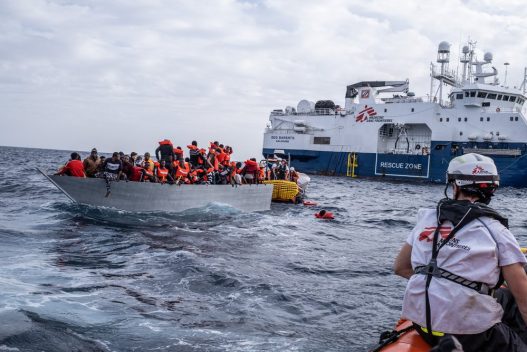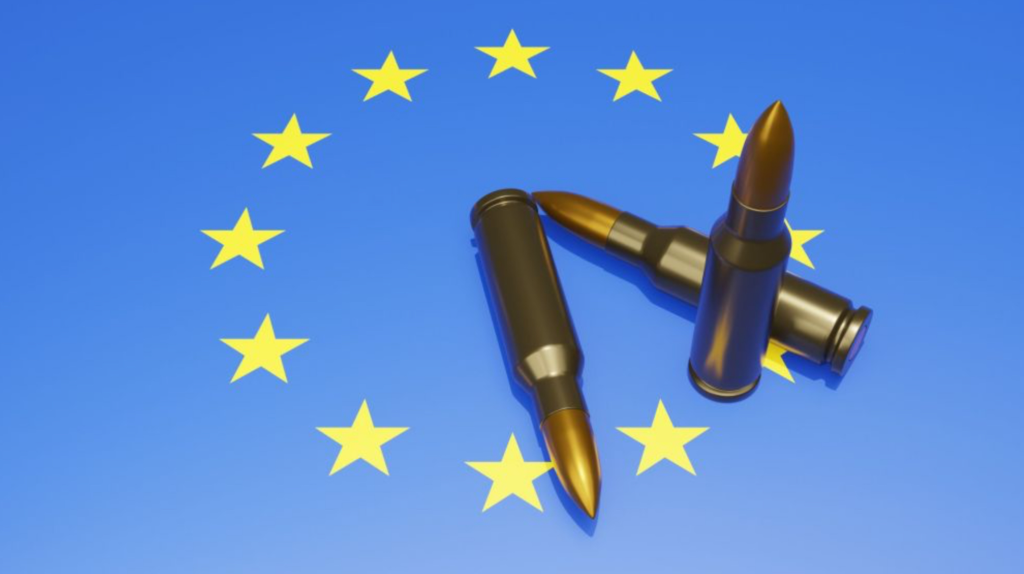
BRUSSELS AGREES ON 'CONTROVERSIAL' EUROPEAN ASYLUM AND MIGRATION PACT
By Julio García / Aquí Europa
The European Parliament this week approved a “historic” and “controversial” pact on migration and asylum. This pact is a complex legislative package to which the European institutions gave the green light last December, but on which remained until the last moment the unknown whether it would receive the endorsement of the European Parliament, after criticism from many MEPs from different groups.
The three European institutions – Parliament, Council and Commission – reached an agreement to give the green light to this pact after marathon negotiations in the final stretch of two days and two nights.
The aim is that this compromise can be formalized in the coming months to arrive with homework done for the European elections in June next year.
“History has been made. We have delivered a robust legislative framework on how to deal with migration and asylum in the European Union,” said European Parliament President Roberta Metsola after the vote.
The European Commissioner for Home Affairs, Ylva Johansson, stressed in the previous debate held in the European Parliament that the pact is “a unique opportunity” that had to be “seized”.
The parliamentarians of the majority groups in the European Parliament warned in the same debate of the risk of a vote against this legislative package, which has been under negotiation for eight years and on which the European institutions reached an agreement last December.
For his part, Spain’s Juan Fernando López Aguilar (PSOE), rapporteur for the pact’s Crisis and Force Majeure regulation, considered that the result achieved after years of negotiations “is better than leaving things as they are, abandoning European governments to their fate”.
Another Spaniard, Jorge Buxadé (VOX), spoke about the Eurodac database regulation, for which he was rapporteur, and indicated that although it does not resolve irregular migration, it is “the first step”.
During the plenary session, MEPs voted in particular on ten new draft laws updating EU asylum and migration rules, which emphasize cooperation and the concept of “compulsory but flexible solidarity”.
This new framework for a comprehensive asylum and migration policy is based on solidarity, responsibility sharing and updated rules on criteria and mechanisms for determining the Member State responsible for examining an application for international protection.
Member States will be able to choose between relocating asylum seekers on their territory, making financial contributions or providing operational and technical support to Member States under migratory pressure.
The approval of this migration pact has been harshly criticized by various NGOs and groups.
Already, in the seat of the European Parliament and during the vote, a group of activists who were in the public box began to shout against the pact and threw paper airplanes to the deputies who were in the hemicycle, something that made Metsola interrupt the session for a few minutes and invite them to leave the plenary.
“The reforms agreed today by the EU on the migration and asylum pact will set back European asylum law for decades and cause more human suffering,” said Amnesty International.
For her part, the coordinator of MSF Spain, Raquel Gonzalez, said that “with the implementation of the Migration Pact, we can anticipate the inevitable medical and humanitarian repercussions of more people trapped, hindered, detained and deprived of safety and protection across Europe, both at sea and in non-EU countries.”
In the same vein, CEAR has warned about the “devastating effects” for thousands of migrants and asylum seekers, who will see how “the European Union reinforces policies of border externalization and returns to third countries.
————
This text was originally published in Aquí Europa, with whose authorization we reproduce it.



